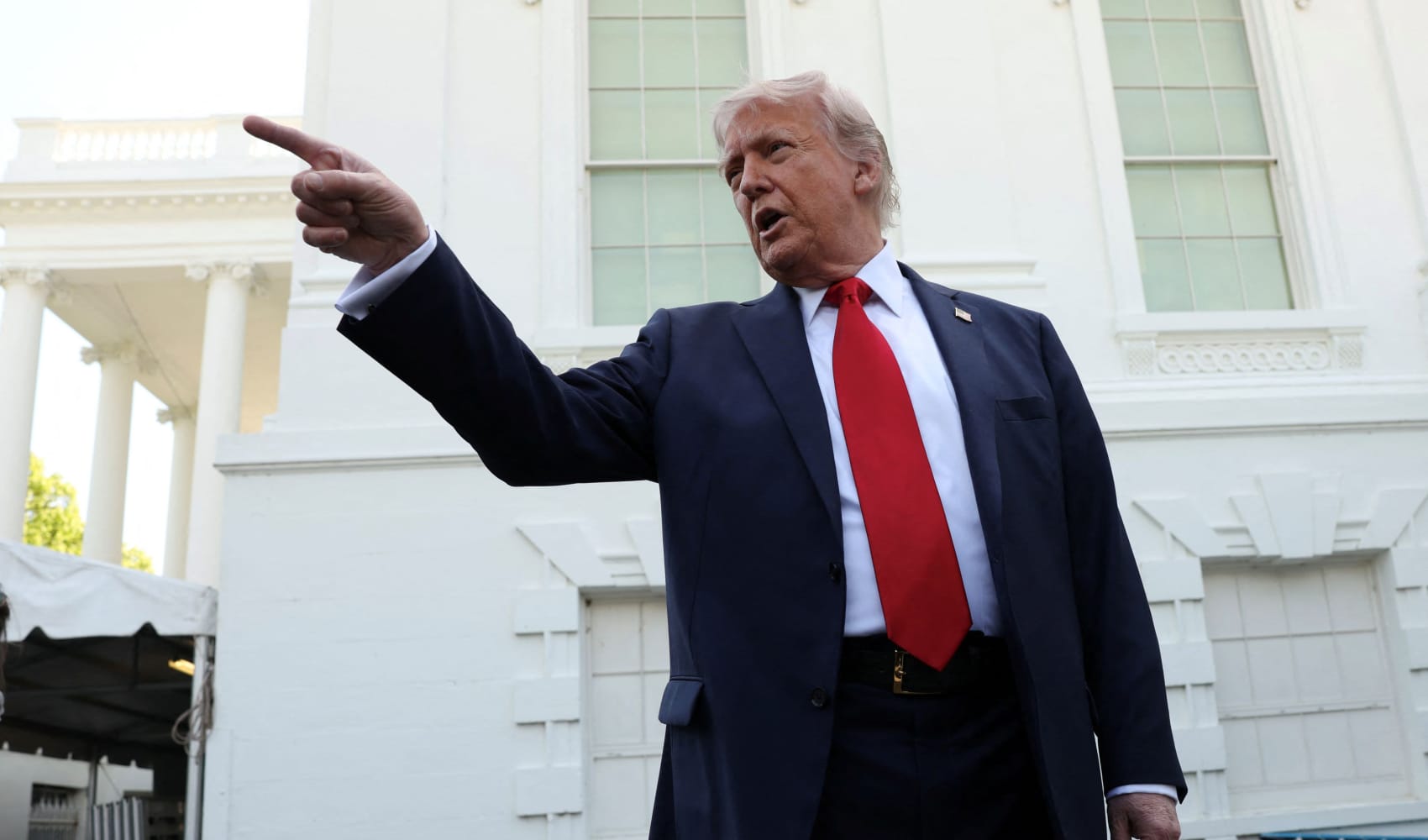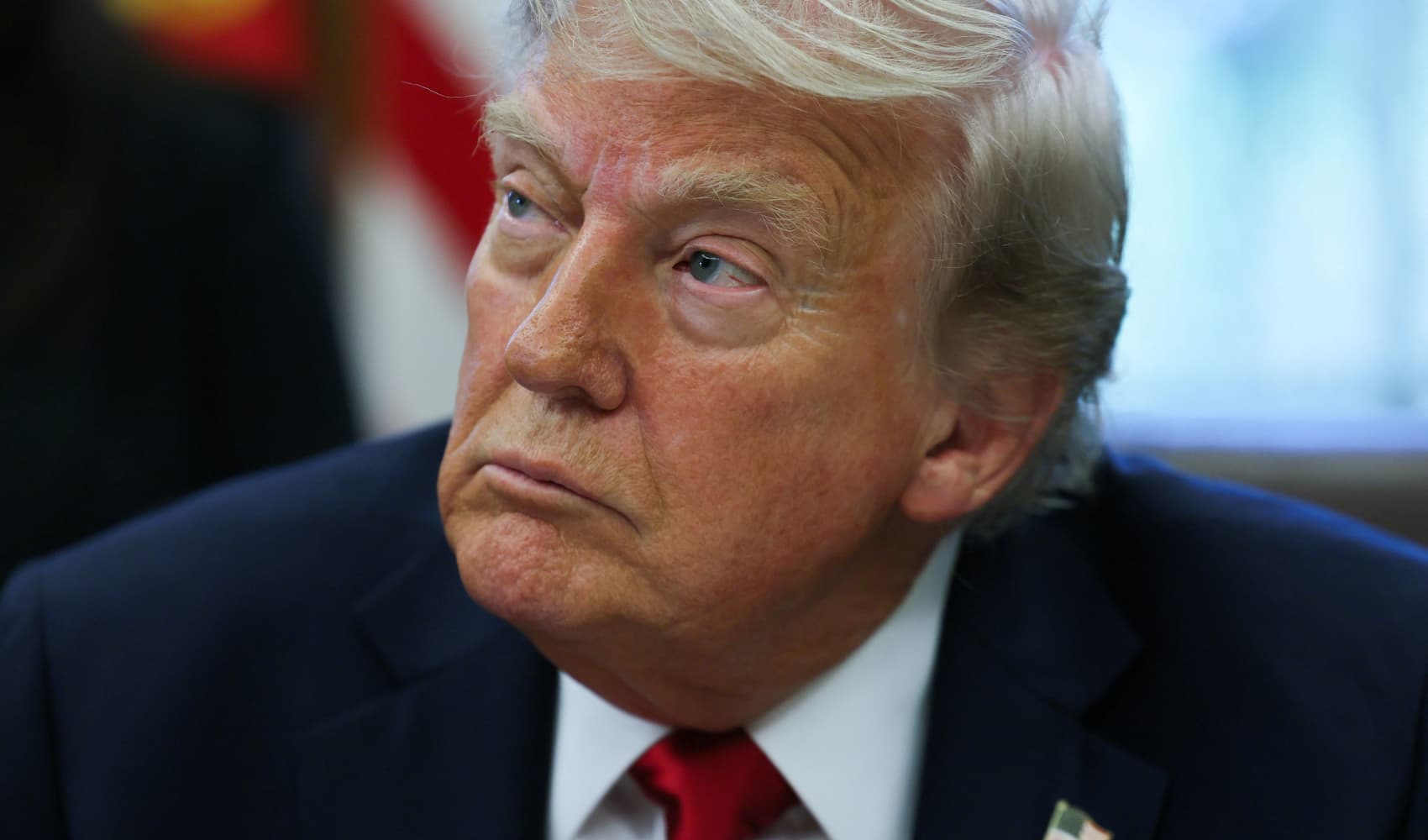Trump Tells Putin "STOP!" Kyiv Attacks: Is This Real?
Trump's Urgent Plea to Putin: "STOP!" Kyiv Attacks Condemned
Introduction: A Sudden Shift in Tone?
The situation in Ukraine remains a volatile and heartbreaking one. Amidst the ongoing conflict, a rather unexpected voice has entered the fray: former U.S. President Donald Trump. He's publicly called on Russian President Vladimir Putin to halt the devastating attacks on Kyiv, the Ukrainian capital. But is this a genuine change of heart, a strategic maneuver, or something else entirely? Let's dive in and dissect this surprising development.
Trump's Direct Message: "Vladimir, STOP!"
The message was short, sharp, and delivered via Trump's preferred social media platform, Truth Social. "Vladimir, STOP!" he wrote. It's a blunt, unambiguous plea, a far cry from some of his past rhetoric regarding Russia and Putin. This directness is characteristic of Trump, but the context makes it particularly noteworthy.
Zelenskyy's Plea for Stronger Action
While Trump issues his public appeal, Ukrainian President Volodymyr Zelenskyy continues to call for stronger international action. "Russia continues to kill people and avoid tough pressure and accountability for this," Zelenskyy stated, underscoring the urgency and severity of the situation on the ground. Is the world listening closely enough?
Trump's Unhappiness with the Kyiv Strikes
Trump didn't mince words about his reaction to the attacks. "I am not happy with the Russian strikes on KYIV," he declared on Truth Social. He characterized the attacks as "Not necessary, and very bad timing." But what does he mean by "bad timing," and why is he speaking out now?
The "Bad Timing" Conundrum: What's Trump Implying?
The phrase "bad timing" is particularly intriguing. Could Trump be alluding to ongoing, behind-the-scenes negotiations? Is he signaling that these attacks jeopardize potential peace talks? Or is it simply a reflection of his broader political strategy? The ambiguity allows for multiple interpretations.
The Potential for Diplomatic Fallout
Regardless of the specific meaning, Trump's comment suggests that he views the attacks as counterproductive. This could have implications for any future diplomatic efforts involving the U.S., Russia, and Ukraine. Will this public statement strengthen or weaken his potential role as a negotiator?
Past Statements and Perceptions: A Shifting Narrative?
Trump's relationship with Putin has been the subject of intense scrutiny for years. His past statements have often been interpreted as being overly lenient towards the Russian leader. This new, direct condemnation of the Kyiv strikes represents a potential shift in that narrative. But is it a genuine shift, or a calculated political move?
The Impact on U.S.-Ukraine Relations
How will this statement be received in Ukraine? Will it be seen as a sign of support, or as too little, too late? The Ukrainian people have endured immense suffering, and their expectations for international support are understandably high. Will this statement by Trump resonate with them?
The Role of Public Perception
Public perception is crucial in shaping international relations. Trump's statement is undoubtedly aimed at influencing public opinion, both in the U.S. and abroad. But will it be effective? Will it change the way people view the conflict and the roles of the various players involved?
The Geopolitical Implications: A Wider Perspective
The conflict in Ukraine has far-reaching geopolitical implications. It has strained relations between Russia and the West, reshaped alliances, and raised concerns about global security. Trump's statement adds another layer of complexity to this already intricate situation.
The Role of Truth Social: A Modern Platform for Diplomacy?
It's worth noting that Trump delivered his message via Truth Social. This highlights the growing role of social media in international diplomacy. World leaders are increasingly using these platforms to communicate directly with the public and to engage in real-time discussions about global events. Is this the future of diplomacy?
Analyzing the Motivation: Why Now?
The million-dollar question remains: Why is Trump speaking out now? What motivates this sudden, direct condemnation of Putin's actions? Is it a genuine expression of concern, a strategic political maneuver, or a combination of both? The answer is likely complex and multifaceted.
Political Strategy and 2024
With the 2024 presidential election on the horizon, every move made by Trump is inevitably viewed through a political lens. Could this statement be aimed at appealing to a broader range of voters? Is he trying to position himself as a strong leader who can stand up to adversaries?
The Future of the Conflict: Uncertainties Remain
The conflict in Ukraine remains a tragedy with no clear end in sight. Despite Trump's plea, the situation on the ground continues to be dire. The future is uncertain, and the need for a peaceful resolution is more urgent than ever.
International Pressure and Accountability
Zelenskyy's call for "tough pressure and accountability" highlights the importance of international action. The world must continue to hold Russia accountable for its actions and to provide support to Ukraine. What more can be done to bring about a just and lasting peace?
Conclusion: A Complex Message in a Complex World
Donald Trump's public plea to Vladimir Putin to "STOP!" the attacks on Kyiv is a significant development in the ongoing conflict. Whether it's a genuine shift in tone, a strategic political maneuver, or a combination of both, it adds another layer of complexity to an already intricate situation. The motivations behind the statement remain open to interpretation, but one thing is clear: the world is watching, and the need for a peaceful resolution to the conflict in Ukraine is more urgent than ever. The message, simple in its delivery, holds profound implications for the future of U.S.-Russia relations, the ongoing war, and the overall geopolitical landscape. Only time will tell if Putin will listen, or if this plea will become another footnote in a long and tragic history.
Frequently Asked Questions
- Why did Trump choose to use Truth Social to make this statement? He has more direct control over his message on Truth Social, avoiding potential media filtering or misinterpretations. It also allows him to directly engage with his base.
- How might this statement affect U.S. foreign policy toward Ukraine? It could potentially influence the debate on the level and type of support the U.S. provides, potentially opening avenues for more direct negotiations.
- What is the likely Russian response to Trump's message? The Kremlin may dismiss it as political posturing, or they might use it to subtly signal a willingness to negotiate under certain conditions. Their public response will likely be carefully calibrated.
- Could this be a sign of Trump trying to re-establish himself as a global leader? Possibly. Weighing in on significant global events helps keep him relevant on the world stage and demonstrates a perceived ability to influence international affairs.
- What is the significance of Trump mentioning the "timing" of the strikes? He likely views the attacks as undermining potential progress towards a diplomatic solution, suggesting a belief that negotiations were, or could have been, underway.

